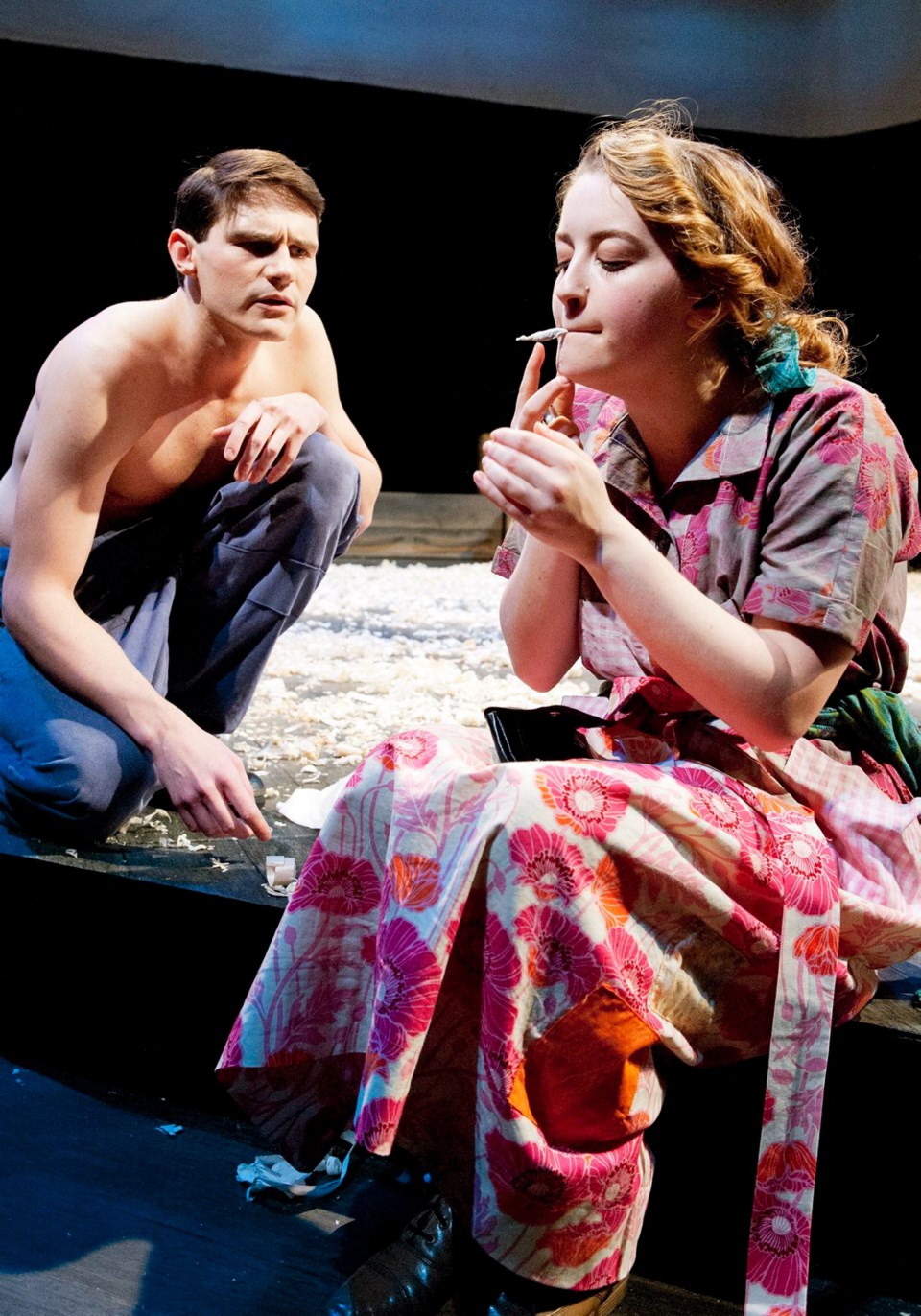Unity (1918)
Where: Phoenix Theatre, University of Victoria
When: Opens 8 p.m. today, continues to March 22. (Note: Director/playwright Kevin Kerr will give a free pre-show lecture on Friday at 7 p.m.)
Tickets: $14 to $24; 250-721-8000
A pile of coffins was stacked neatly on the thrust stage in UVic’s Phoenix Theatre building this week.
These simple wooden boxes, with ropes for handles, are props for Unity (1918). Kevin Kerr’s 2001 play visits the inhabitants of small-town Unity, Sask., who are dealing not only with the First World War but the devastating influenza pandemic of 1918.
The so-called Spanish Flu killed more people in Canada in four weeks than in four years of fighting.
Kerr won a 2002 Governor General’s Award for his darkly humourous drama, which has had a dozen professional productions and 50 non-professional stagings — a notable achievement for a Canadian work.
The UVic theatre department marks the first time the playwright has directed his play.
“It does seem funny. It seems very weird. I feel a little self-conscious all the time,” said Kerr, a Vancouver native who is an assistant theatre professor at UVic.
Unity (1918) features three lovestruck young women who pine for absent soldiers and local farm hands. One soldier, blinded in the war, returns to seek his father, the town undertaker. However, the undertaker has died — his job has been taken over by his teenaged Icelandic niece.
That detail comes from the idea that sparked the play. Kerr said when he finished high school, he asked a friend what her plans were. He never forgot the answer.
“She said, ‘I think I’m going to become a mortician.’ This beautiful, vivacious 17-year-old was saying, ‘I’m going to spend the rest of my life in death.’ It was like, wow, really?”
In assembling ideas for Unity (1918), Kerr became intrigued by the impact of influenza in this country, which today is overshadowed in Canadian history books by the First World War. In his play, the citizens of Unity impose a quarantine which fails to keep out the flu. Before writing, Kerr read Eileen Pettigrew’s The Silent Enemy: Canada and the Deadly Flu of 1918 which “blew my mind.”
Kerr penned Unity (1918) as a playwright-in-residence at Vancouver’s Touchstone Theatre. He gave the company a proposal for his play, along with a few sample scenes. But then Kerr wondered if he’d blown it.
“I thought, That was probably the worst proposal ever. There’s nothing less sexy than a play about the flu.”
Happily, Touchstone accepted Unity (1918), which premièred at the Vancouver East Cultural Centre in 2001.
The play is replete with a dark humour somewhat reminiscent of contemporary Irish playwrights such as Martin McDonagh. One of McDonagh’s plays, A Skull in Connemara, is about a man who — hired to dig up skeletons in a graveyard — encounters the remains of the wife he was accused of murdering.
In Unity (1918), a man transporting his dead wife in a wheelbarrow accidentally drops her, causing the corpse to loudly break wind.
“I love the absurd,” Kerr said. “That slightly warped and twisted British humour has always been a favourite of mine.”
The playwright is a founding member of Vancouver’s Electric Company Theatre. Kerr has an upcoming project with Electric Company — the troupe is now creating a short play as part of a series called Obstructions.
Vancouver’s Progress Lab, a network of independent theatre producers, oversees the series. Each participating company is presented with rules or “obstructions” which must be followed. In the case of the Electric Company, they must create a nostalgia-free play set in the present day and cannot use fancy high-tech effects (something for which the company is renowned).
“And,” Kerr said with a smile, “it has to be threatening to the middle class.”
